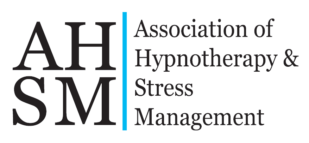By: Caroline Dyson – Founder and Director of HISP
At least 3 children in every classroom are thought to be suffering from a mental health issue (The Independent, 2016). That statistic alone is shocking enough but what is more frightening is that some children are waiting years to be assessed by Child and Adolescent Mental Health Service (Young Minds, 2016) before they can even begin their journey of accessing the support they need. Vital mental health services are being stretched to breaking point through financial cuts and organisational restructures are reducing staffing and support available. It is certainly a worrying picture.
Many people would agree that the pressure on children and young people in society is increasing and this is supported by evidence from a variety of sources: ChildLine reported an increase of 116% in callers talking about suicide from 2010/11 to 2013/14 (ChildLine Report, 2014); rates of depression and anxiety in teenagers has increased 70% in the past 25 years (Parliamentary Question 2015); children/young people presenting at A&E with a psychiatric condition has more than doubled since 2009 (Mental Health Foundation, 2004). Children/young people spend a large proportion of their lives at school therefore the issues often present themselves in this setting first, with school staff frequently being the first to notice a young person struggling to cope. The government agenda now requires schools to promote and protect pupils wellbeing and emotional/mental health but this responsibility often falls on classroom teachers who are being asked to do more than simply teach. Education staff are now required to play a multitude of roles including surrogate parents, social workers, youth workers, babysitters, legal advisors, therapists and medics, often without the necessary training, support and time that is needed. There is only so much we can ask of our education staff.
The Hypnotherapy in Schools Programme (HISP) can serve a vital role in helping with some of these issues. It provides therapeutic input (through clinical hypnotherapy) in educational settings to support, protect and sustain good mental health or provide specialised therapeutic support while youngsters are on the lengthy waiting lists to see CAMHS or other mental health services. In some cases, this support is so effective that they don’t need to see CAMHS when the appointment arrives (though HISP always advises this appointment is taken). HISP doesn’t replace mental health provision but it can be very useful in supporting it, especially at a time when such services are so stretched. HISP is bought in by a school through various packages. Pupils can be seen individually or in small groups. Sessions are carried out weekly and a supporting CD is provided with tracks that can be listened to between sessions to help generalisation and provide additional coping strategies. Techniques to manage thoughts and emotions are taught and underlying issues are tackled where possible and appropriate. HISP can help with a wide range of issues from lower level concerns such as dealing with exam anxiety/stress, low self-esteem, low confidence and sleeping issues to more specific areas such as panic attacks, OCD, depression, eating issues and pain control. As long as the individual can understand language at the level of approximately 6 years old and is willing to engage, they are likely to see a positive impact. Recent evaluations indicated that 75% of pupils achieved or exceeded at least one or more of their targets, 95% made ¾ progression towards one or more of their targets while every pupil who completed the programme made some progress towards a target.
But HISP is not just for the youngsters! Group or individual sessions can be delivered to help staff with their own mental/emotional health and wellbeing and why not? After all, the better staff feel in themselves, the better able they are to help the students in their care and so it’s a win-win situation.
HISP helps to bridge the gap between education and health, providing quicker access to therapeutic support within a school making it more accessible for children/young people, whatever their personal circumstances. It gives coping strategies that can last a lifetime and helps children/young people feel better and so ultimately learn better. There really isn’t anything to lose and everything to gain.
